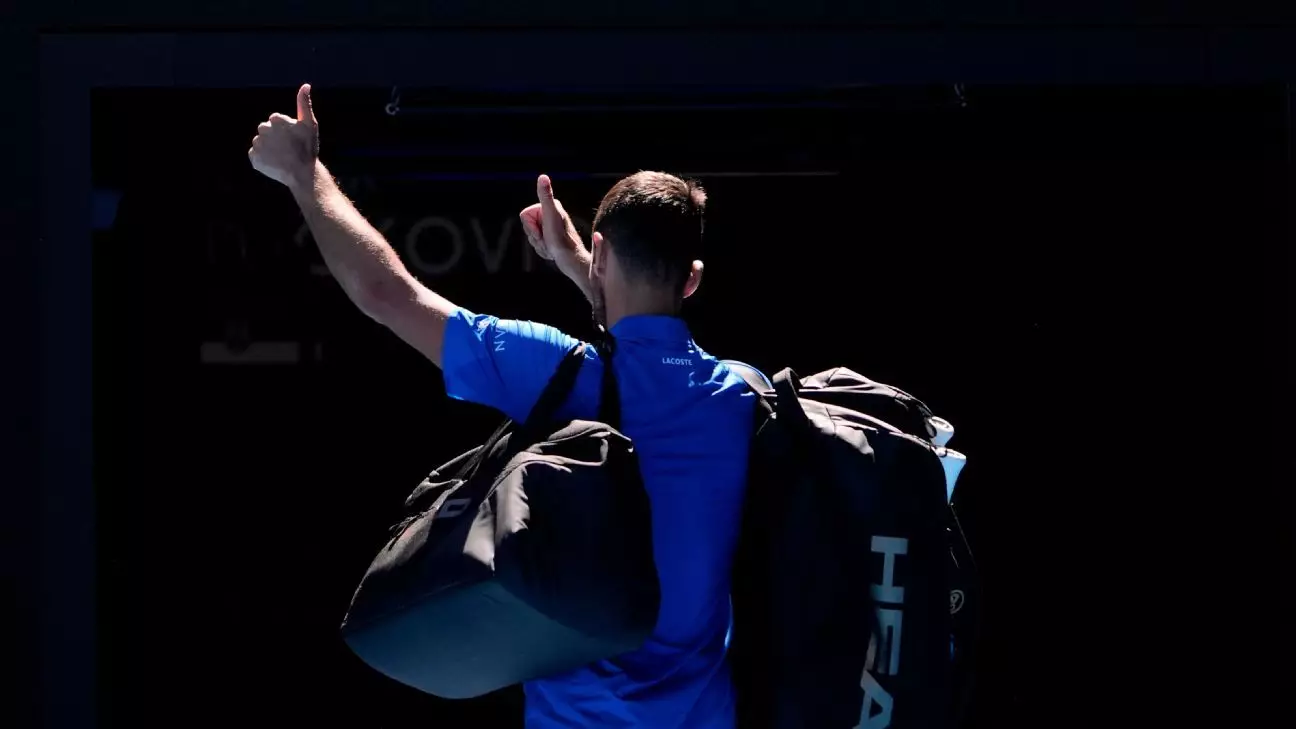The Australian Open has always been a grand stage for tennis talent, and for Novak Djokovic, it has been a venue of personal triumphs and records. However, the anticipated semi-final match against Alexander Zverev became a heartbreaking chapter in Djokovic’s illustrious career. This time, the twenty-four-time Grand Slam champion was a spectator to his own aspirations as he succumbed to a muscle tear, abruptly retiring from the match after an intense first set. The tennis world watched in disbelief as Djokovic, hampered by injury, shook hands with his opponent, acknowledging Zverev’s entry into the final rather than insisting on his own competitive fire.
Injuries are an unfortunate reality in professional sports, capable of swiftly altering the trajectory of a career or a single tournament. Djokovic’s struggle with pain during the match exemplified the fragility of athletic performance, especially in high-stakes environments. The muscle tear, sustained in his quarterfinal victory over Carlos Alcaraz just days prior, certainly weighed heavy on his mind and body as he faced Zverev. “I did everything I possibly can to manage the muscle tear that I had,” Djokovic reflected, illustrating the mental fortitude required even when the body betrays an athlete. The psychological burden of managing an injury while competing cannot be understated; it often leads athletes to grapple with expectations and worries about future performances.
The atmosphere in Rod Laver Arena shifted dramatically as fans, initially buzzing with excitement, turned their energy into discontent when Djokovic exited post-retirement. Their booing reflects a complex relationship between athletes and spectators—often driven by a desire for a nail-biting contest, audiences may react poorly to unexpected interruptions caused by injury. In a refreshing display of sportsmanship, Zverev defended Djokovic during his on-court interview, urging fans to understand that injuries are an inherent part of sports: “Please show some respect,” he admonished. This moment highlighted an essential aspect of athletics—respect for one’s opponent, regardless of the circumstances.
Djokovic’s introspective comments post-match reveal the mind of a competitor wrestling with disappointment. “Even if I won the first set, it was going to be a huge uphill battle for me to stay physically fit enough,” he lamented. The realities of elite sport extend far beyond physical performance; they involve relentless mental and emotional strength. For an athlete of Djokovic’s caliber, doubting one’s physical abilities in the heat of competition is a conundrum that can challenge their identity as champions. Djokovic’s situation serves as a poignant reminder of the limitations athletes face, even those with remarkable accomplishments and accolades.
Despite the setback, Djokovic reaffirmed his commitment to returning stronger. His determination to recover quickly and assess his future engagements—like the upcoming Doha tournament—demonstrates a champion’s resolve. “I will get together with the medical team… to understand what we can do and the quickest way to recover,” he stated. This willingness to confront obstacles with an actionable plan is vital not only in sports but also in life. For fans, the hope is palpable: will Djokovic’s tenacity and skill prevail once again against the odds, or will injuries prove a more formidable opponent in the future?
Injuries may alter specific chapters, but they cannot rewrite the entire narrative of Djokovic’s career. As he embarks on the path to recovery, he remains a symbol of resilience and determination in sports. The Australian Open may have ended in a twist of fate for him this year, but Djokovic’s journey will inspire countless others who face physical trials. With each crisis comes an opportunity for rebirth, not just as an athlete but as a human being—a lesson far more profound than any victory on the court.


Leave a Reply